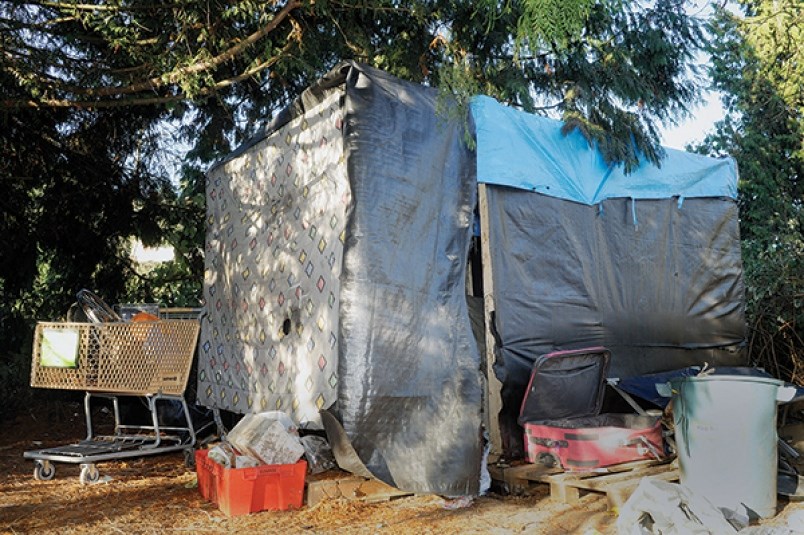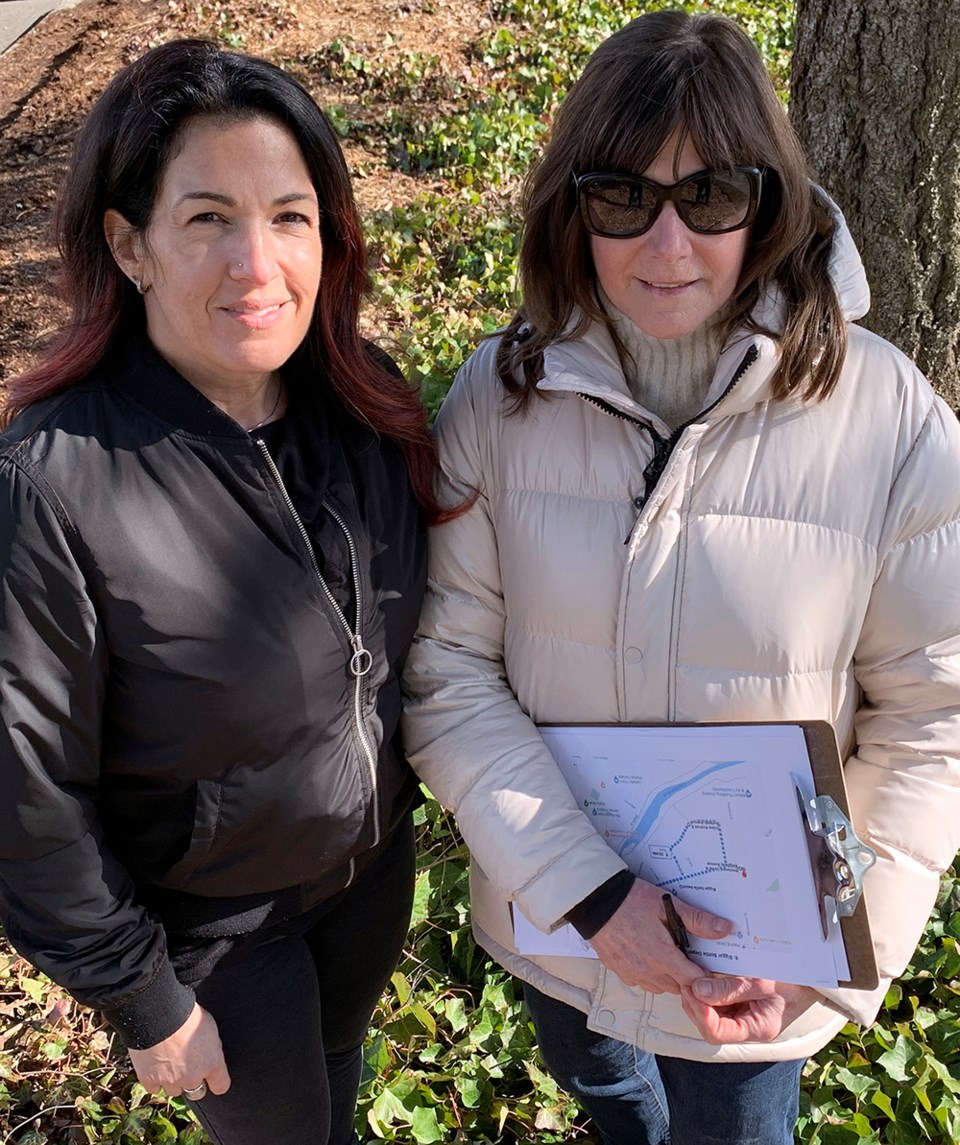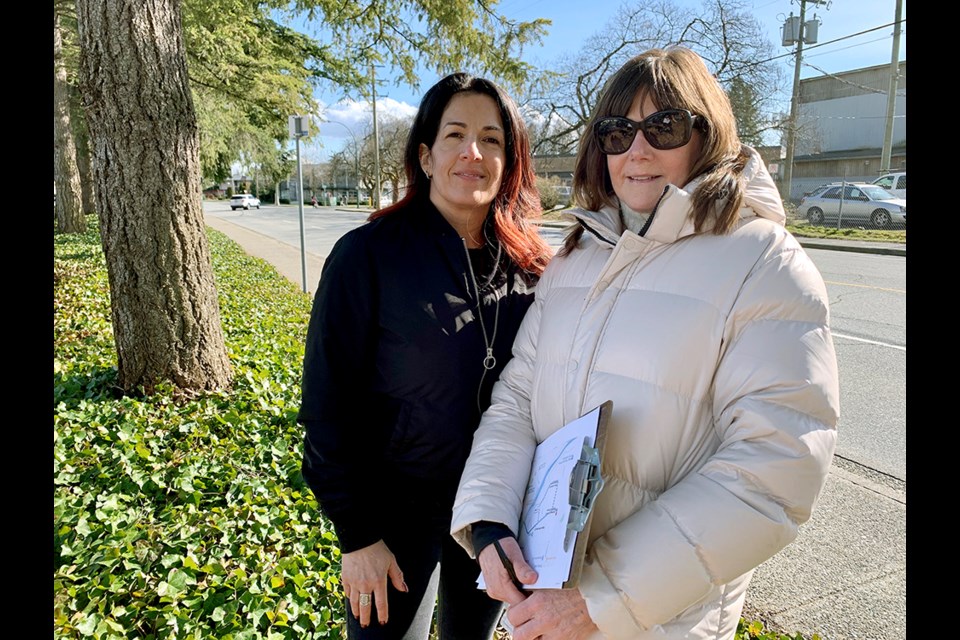It is a beautiful day for a stroll along the Coquitlam River but Cristina Pereira and Patricia Sonier are not here for the sunshine.
They are two of more than 1,200 volunteers across the Lower Mainland taking part in the Metro Vancouver homeless count, collecting data that will be used by governments and community agencies trying to grasp how many people are sleeping outside.
And today, the bright skies are hindering the pair's efforts.
"They tend to wander more when it is not raining," Sonier said, noting homeless people are easier to find in bad weather because they are more likely to stay in their tents or congregate in covered areas.
"It doesn't look like we are going to see as many here, yet we know there are definitely people in the area who are homeless," added Pereira. "It doesn't give the full picture."

Pereira and Sonier are co-chairs of the Tri-Cities Homelessness Task Group and are well aware of the problems many people face finding shelter and services in the area.
Taking part in the homeless count, they said, gives them an opportunity to help collect badly needed data and connect directly with the people they want to help.
The count takes place over a 24-hour period March 3 and 4, with volunteers working in three-hour shifts. Armed with a clipboard and a few snacks to hand out, they canvas neighbourhoods looking for anyone experiencing homelessness who may be interested in answering a few questions about their situation.
But determining who is living on the streets is not always easy.
The pair are wary of offending anyone they approach and are apprehensive when they notice a man sitting on a bench with three others near the pedestrian bridge at the end of McAllister Avenue in downtown Port Coquitlam. Next to the man is a bicycle connected to a trailer full of camping equipment.
"Should we talk to him?," Pereira asks her partner.
The pair's suspicions are quickly confirmed. The man, who goes by the name ZZ, said he has been living on the streets for the last 18 months after being renovicted.
"I just stay anywhere I can," he tells The Tri-City News. "I just deal with what I got to deal with."

He added that he prefers sleeping outside to staying at the shelter at 3030 Gordon Ave. in Coquitlam because he does not like to be around people who use drugs. ZZ said even the cold snap in January was not enough to get him to take advantage of the emergency shelter or cold/wet weather mat program, another service offered in the Tri-Cities during the winter months.
"Just give me a home," he said. "That's all I care about. That's all I want, really."
ZZ's story is fairly typical, according Pereira.
She said outreach workers often hear from homeless people who end up on the streets after a landlord decides to make changes to their property.
His reticence to be around people using drugs is also common, she added.
"People assume that all homeless people are junkies, druggies, or what not. That is just not the case," Pereira said.
She added that people like ZZ are why a range of services, including abstinence-based shelters, are needed in the area.
3,605 COUNTED IN 2017
Pereira and Sonier cross back over the pedestrian bridge and walk towards Kingsway Avenue, making their across the train tracks and north on Westwood Street. They check Fox Park before crossing Westwood Street and looping through the Westwood Mall parking lots.
But the only other people they see on their shift is a group loitering in front of the Gordon Avenue shelter who do not want to take part in the survey.
There are many reasons for that, Pereira said. Some do not want to talk to a person they may see as an authority figure while others may have concerns over how the data is being used. Many are just frustrated.
"They just don't want to engage with it," she said. "They don't feel anything is going to come from it."
The last time a homeless count was conducted in 2017, 3,605 people were found to be experiencing homelessness in Metro Vancouver, up 30% from the previous count three years prior. According to a report summarizing the data, the majority of the homeless people counted were between 25 and 64 years of age while 8% were under 19 and another 8% were between 19 and 24. Accompanied children made up 117 of the total.
In the Tri-Cities, 117 were counted as homeless in the 2017 survey, up 113% from the 55 tallied in 2014.
Both Periera and Sonier believe the problem has become worse in the last three years and they're anxious to see the most recent figures, which are expected to be released next month.
"Historically, every count that has been done, the numbers have gone up," said Pereira. "The fact that we are still realistically not getting everybody just adds to it. We know the numbers have gone up and we know that we didn't get everybody."



